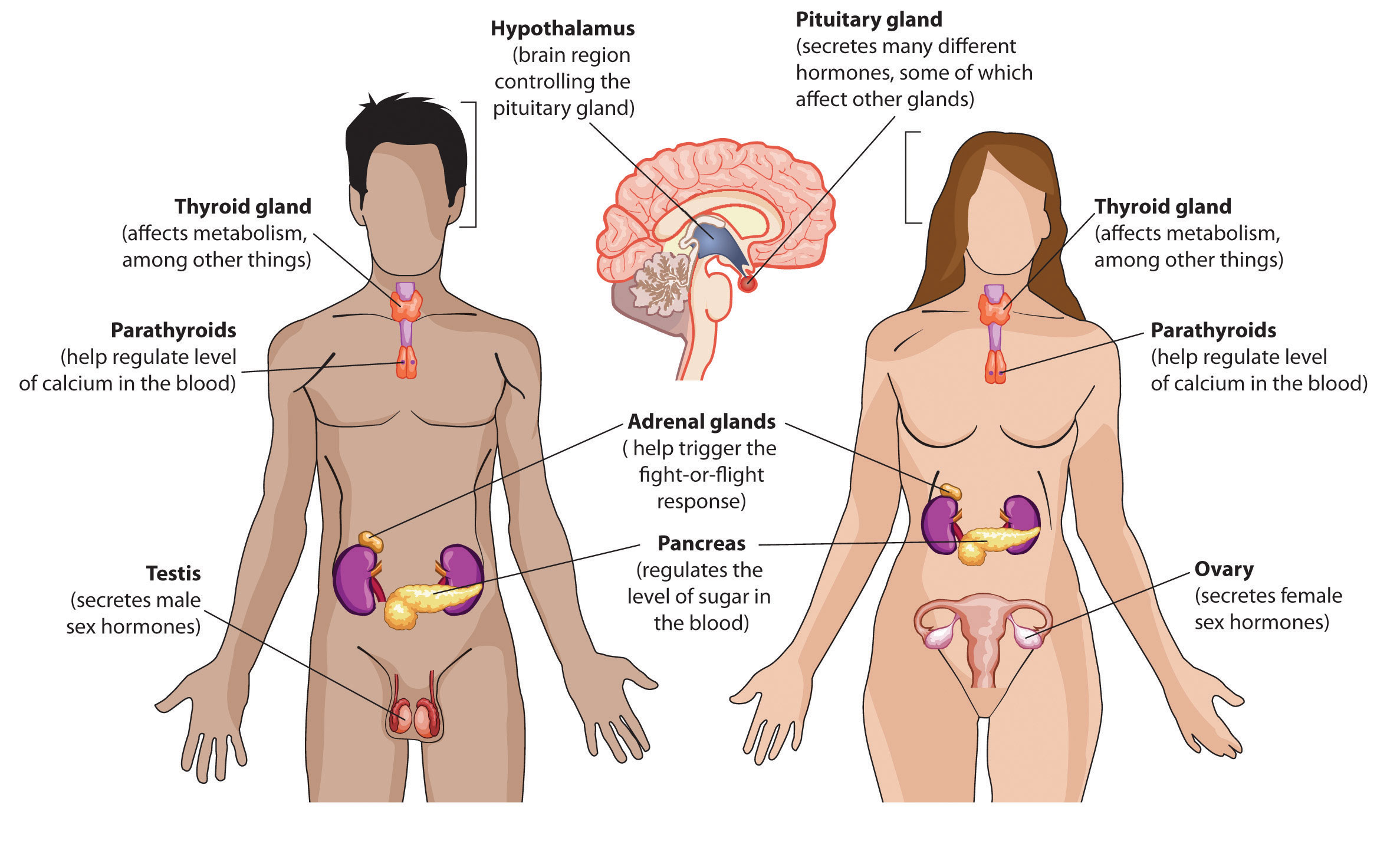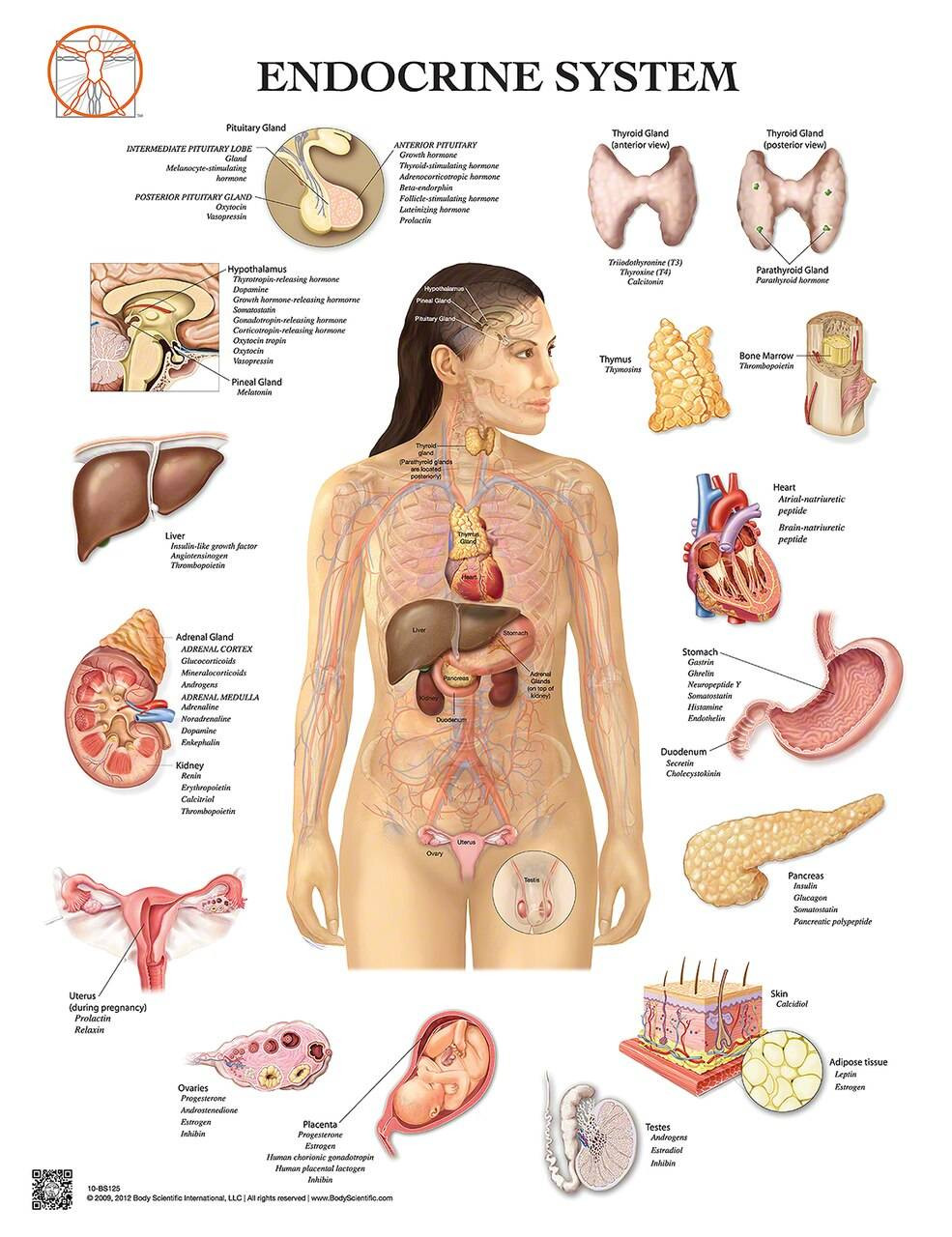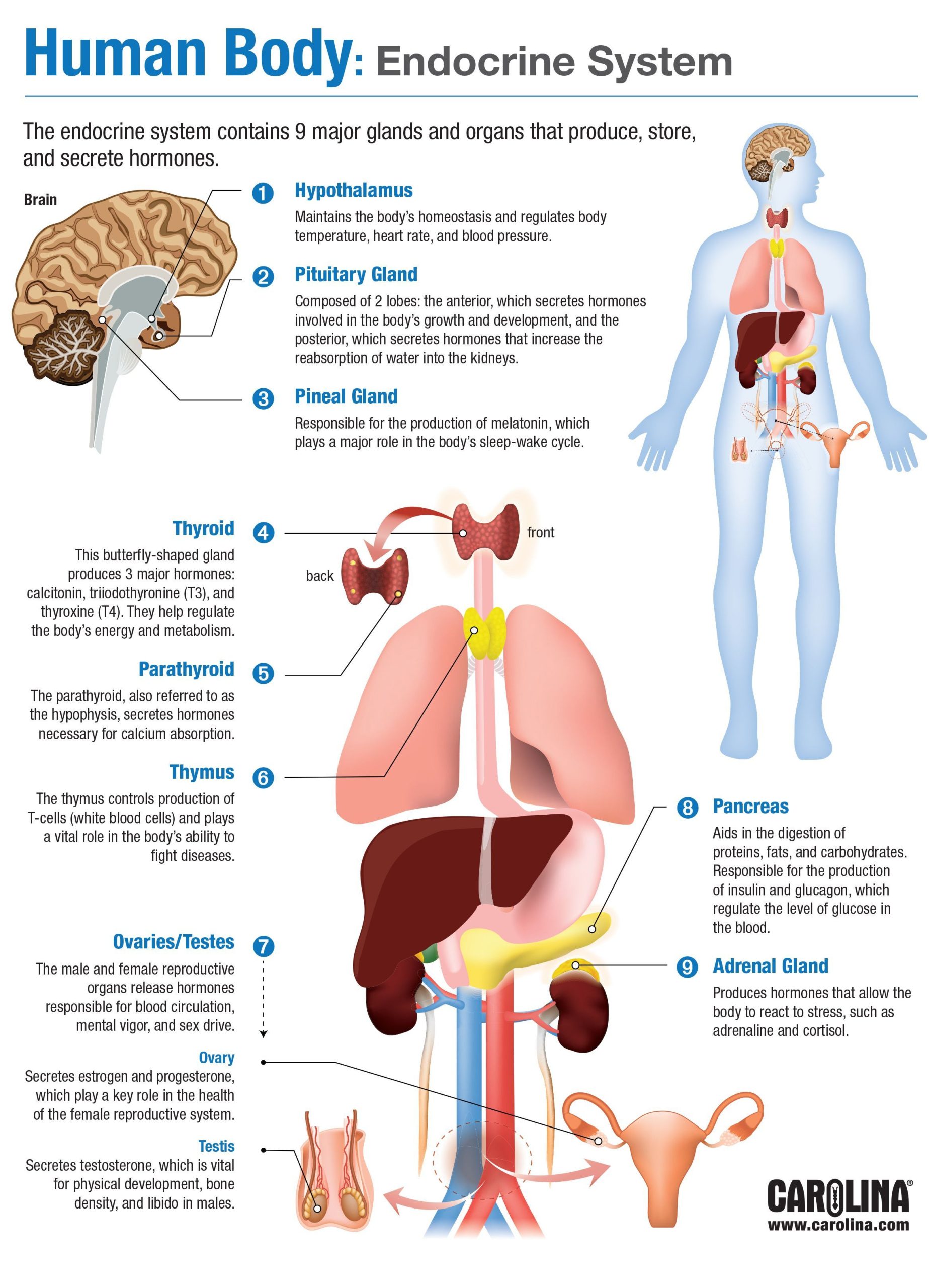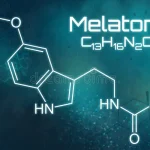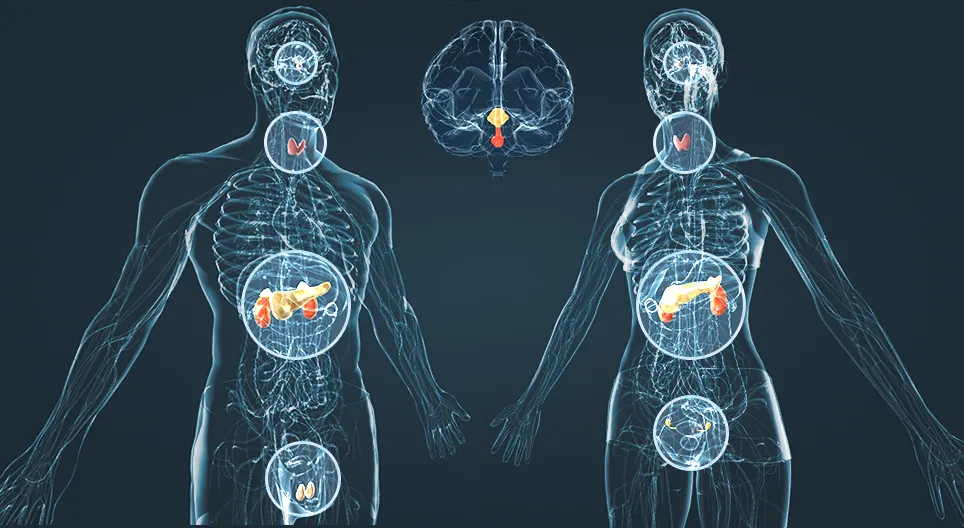
Key facts
- The hormonal system, also called the endocrine system, is a network of glands and organs in the body that produce hormones.
- Hormones regulate all the cells in your body, controlling your body’s metabolism, growth and many other functions.
- Some examples of hormones in this system include growth hormone, insulin, thyroxine, testosterone, cortisol, oestrogen and progesterone.
- When a hormone is released from a gland, it travels in the blood through the body until it reaches its target.
- Medical conditions that affect the hormone system include diabetes, thyroid problems and Cushing’s disease.
What is the hormonal system?
The hormonal system, also called the endocrine system, is a network of glands and organs in the body that produces hormones.
Several glands make hormones, including the hypothalamus, the pituitary gland, the pineal gland, the thyroid gland, the parathyroid glands, the adrenal glands, the pancreas, ovaries and testes.
Each gland makes one or more hormones. Hormones are important for almost all cells in the body to work. They influence the metabolism, growth and many other functions. Some hormones influence almost all cells in the body. Others only influence a small number of cells in specific organs.
Some glands ‘talk to’ other glands, telling them to release particular hormones. For example, the pituitary gland releases hormones that tell the thyroid gland, the adrenal glands, the ovaries and the testes to release hormones.
The hormonal system, also called the endocrine system, is a network of glands and organs in the body that produces hormones. Each gland makes one or more hormone that is active in the body.
Glands and organs that produce hormones include the:
- hypothalamus
- pituitary gland
- pineal gland
- thyroid gland and parathyroid glands
- adrenal glands
- pancreas
- ovaries and testes
How does the hormonal system work?
When a hormone is released from a gland, it travels in the bloodstream through the body. It passes by most cells, but eventually reaches its target.
When it reaches its target, it attaches to a particular type of cell, known as a receptor cell. The hormone then tells the receptor cell to do something. It can make cells grow faster, release another hormone, absorb sugar from the blood, withhold water from the kidneys, or one of many other important functions in the body.
What are some examples of hormones?
Some examples of hormones are:
Growth hormone: This is released from the pituitary gland. It is essential for normal physical growth in children and for some functions in adults, such as fat and muscle mass.
Thyroxine: The thyroid gland (in the neck) converts iodine from the diet into thyroxine. This controls many functions of the metabolism, including temperature, heart rate and growth.
Cortisol: This is released from the adrenal glands (just above the kidneys). It is important for controlling blood pressure and for dealing with the body’s response to stress.
Insulin: This is produced by islet cells in the pancreas. It controls blood sugar levels.
Oestrogen and progesterone: These hormones, released from the ovaries, are responsible for female body characteristics and for storing and releasing eggs.
Testosterone: This is released from the testes. It produces male body characteristics and sperm.
Find out more about the main endocrine glands and their hormones.
What medical conditions relate to the hormonal system?
The hormonal system can go wrong. Glands might produce too many or too few hormones, or the target cells might stop responding properly to the hormones.
Some common hormonal problems are:
- diabetes
- thyroid problems, such as hypothyroidism and hyperthyroidism
- Cushing’s syndrome
- some fertility problems
- congenital adrenal hyperplasia
These problems are usually treated by controlling how much hormone the body makes. An endocrinologist (endocrine gland specialist) can help diagnose and treat the problem.
What is the function of the hormonal system?
Hormones are important for almost all cells in the body to work. They influence the metabolism, growth and many other functions. Some hormones affect almost all cells in your body. Others only target a small number of cells in specific organs.
Some of the body functions that hormones control include:
- bone and muscle health
- heart function and blood pressure
- metabolism, appetite and body weight
- sexual development and reproduction
- growth
- sleep cycles
- stress response
What are the parts of the hormonal system?
The hormonal system includes many different glands and organs that produce and/or respond to a range of different hormones.
Some examples of hormones that are active in the hormonal system include:
- Growth hormone: This is released from the pituitary gland. It is essential for normal physical growth in children and for some functions in adults, such as maintaining fat and muscle mass.
- Thyroxine: The thyroid gland (located in the neck) converts iodine from the diet into thyroxine. This controls many functions of the metabolism, including temperature, heart rate and growth.
- Cortisol: This is released from the adrenal glands (located just above the kidneys). It is important for controlling blood pressure and for stimulating the body’s response to stress.
- Insulin: This is produced by islet cells in the pancreas. It helps controls blood sugar levels.
- Oestrogen and progesterone: These hormones, released from the ovaries, are responsible for female body characteristics and for storing and releasing eggs.
- Testosterone: This is released from the testes. It produces male body characteristics and sperm.

Find out more about the main endocrine glands and their hormones.
How does the hormonal system work?
When a hormone is released from a gland, it travels in the blood through the body. It passes by most cells and eventually reaches its target.
When it reaches its target, it attaches to the cell’s receptor, stimulating a response. Depending on the target cell, this response might include, for example:
- making cells grow faster,
- releasing another hormone
- absorbing sugar from the blood
- withholding water from the kidneys
Some glands stimulate other glands to release particular hormones. For example, the pituitary gland releases hormones that tell the thyroid gland, the adrenal glands, the ovaries and the testes to release other hormones.
What medical conditions are related to the hormonal system?
The hormonal system can malfunction. Glands might produce too many or too few hormones, or the target cells might stop responding properly to the hormones.
Some common hormonal problems include:
- diabetes
- thyroid problems, such as hypothyroidism (underactive thyroid) and hyperthyroidism (overactive thyroid)
- Cushing’s syndrome
- some fertility problems
- congenital adrenal hyperplasia
These problems are usually treated by controlling how much hormone the body makes, or using medicines to supplement missing hormones.
An endocrinologist (endocrine gland specialist) can help diagnose and treat hormonal problems.
